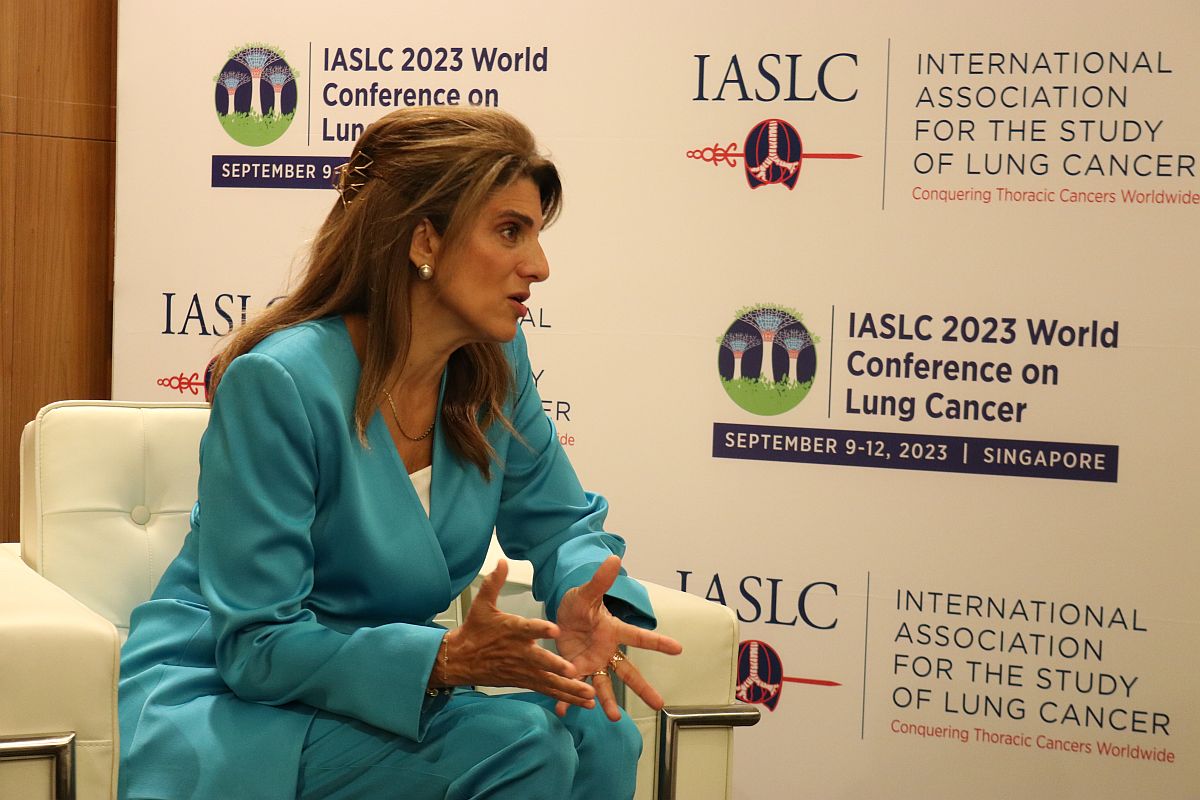SINGAPORE, Nov 2 – Princess Dina Mired of Jordan, a leading advocate against the tobacco industry, has called for comprehensive tobacco control measures to curb lung cancer and reduce the burden of non-communicable diseases (NCDs) globally.
The former president of the Union for International Cancer Control (UICC) described tobacco control as a “no-brainer solution” that could prevent a surge in new lung cancer cases. Currently, about 90 per cent of lung cancer cases are due to tobacco.
“You cannot talk about lung cancer without talking about tobacco, even though we do know that 10 to 15 per cent of people with lung cancer don’t smoke – so let’s put that out there. But really, I mean, we have this one disease that is very amenable to prevention.
“We do know that 90 per cent of lung cancer cases are due to tobacco, and that is a fact that is not contested,” Princess Dina told reporters at the International Association for the Study of Lung Cancer (IASLC) World Conference on Lung Cancer 2023 last September 9.
“I call it a no-brainer solution. Lung cancer treatments are super expensive, we know that. Especially now, with personalised medicine that some lucky cancer patients get to have, whether immunotherapy or therapeutic drugs.
“We do know that the rest of low middle-income countries are excluded from that because these drugs are so expensive, and many countries don’t even have yet the ability to deliver even traditional treatments.
“Of course, lung cancer patients have to be able to have access to treatment and be given their chance of survival, whether five years or more.
“The least expensive option is to close the tap. Close the tap that is producing an avalanche or a flood of new customers for cancer, let alone, lung cancer.
“Tobacco control is an obvious one for me because it’s not just causing lung cancer, we know it causes 30 per cent of all cancers, plus NCDs.”
Jordan has one of the world’s highest smoking rates in the world. According to the World Health Organization (WHO), 82 per cent of men in Jordan smoke or regularly use nicotine products, including cigarettes, shisha, and e-cigarettes.
“We are trying very hard [to remind the government to stop the tobacco industry]. It’s super hard because the tobacco industry dangles its dollars, especially as they zoom in on countries facing challenging economies, as if they are the saviours of these economies.
“You should see during Covid-19, the tobacco industry were the first to, for example, say, ‘Oh, we will pay you the tax revenue in advance’, as if they are the good guys when we do know that countries lose more than double or triple in medical and environmental costs.
“The problem is the tobacco industry has a big budget for marketing for all the sneaky tactics that we all know about.
“Yes, our government, they have to implement the public health law. The situation is quite dire that even His Majesty King Abdullah II intervened to say enough is enough, we really need to implement the health public health law, especially tobacco control.
“We have hope that now, maybe some more implementation of the law will happen,” Princess Dina said. “The problem is, the tobacco industry, they need more lungs.”
Princess Dina commended countries like Australia, Canada, and the United States for their successful tobacco control initiatives but cautioned against the tobacco industry’s expansion into low middle-income countries and sub-Saharan Africa, where increased gross domestic product (GDP) may lead to higher consumption rates.
“In sub-Saharan Africa, at least, they have had traditionally low [tobacco] addiction rates, which I was quite surprised about, but I was happy.
“But they (tobacco industry) have started to look into the African continent, the sub-Saharan continent because as their GDP increases, they will be able to consume more and so they’re eyeing up more lungs available to them,” she said.
Princess Dina again reiterated the call for international solidarity to combat tobacco-related diseases, protect populations, and curtail the influence of the tobacco industry. “We all need to advocate against the tobacco industry for what it’s doing to all of us.”








